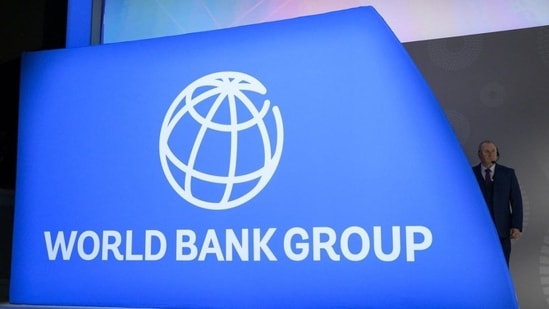A ‘permanent scar”: Why the World Bank is worried about inequality
The world should pay attention, for as history has shown, a sharp rise in inequality does not only have economic implications. It is a precursor to socio-political unrest
Washington: The World Bank’s report on Global Economic Prospects, released on Tuesday, has several significant takeaways – it projects a sharp slowdown in the global economy, underlines the risks posed by Omicron and new variants to economic activity amid vaccine inequity, flags the possible impact of inflationary pressures, alerts us to the implications of the winding down of fiscal and monetary policy support and the fading away of pent-up demand that saw growth bounce back in 2021, and asserts how emerging and developing economies will find it far tougher to recover compared to the more advanced economies.

But its most serious warning is about inequality, and how this threatens to reverse historic development gains, leave millions of citizens worse off than they were even three years ago, close pathways to better education, health, and professional pathways, and deepen the divide both within countries, but more acutely, between countries.
First, the context.
Over the past two decades, inequality – the report points out – has actually decreased. The 1990s had seen a sharp increase in Gini Coefficient (the metric used to measure income inequality). But since the 2000s, the within-country Gini coefficient fell by 1.5 points; the income-share of the richest one per cent declined by one percentage point to 16% while the income-share of the bottom 40% rose by 0.6 percentage point to 17.8%; income inequality declined in more than two-thirds of the emerging and declined economies and half the advanced economies.
The inequality in income between countries dipped too – the between-country unweighted Gini index dipped by one-tenth in the 2000s, and the population-weighted average median income in emerging and developed economies grew by 57.5% compared to 8.7% in advanced economies. The Bank’s economists attributed this largely to growth in countries such as China and India.
The pandemic has not just halted, but reversed, these admittedly incremental improvements in making the world less unequal. To get a sense of these trends, the Bank, besides existing data and its own projections, relied on high-frequency phone surveys of more than 216,000 households in 52 emerging and developing economies between April and December 2020. Surveys (both phone and web-based) were also conducted with 100,000 firms in 50 developing economies in 2020. Here is what the World Bank believes has happened to inequality post the pandemic using simulations based on these surveys and country-specific growth projections.
Within countries, the Gini coefficient increased, on average, by 0.3 points in 2020. Even in settings where inequality did not increase (because the rural agricultural population was relatively insulated), the report suggests that urban inequality has increased since the “hard-hit services sector tends to employ more informal, lower-skilled and lower-income workers”. In 2020, among the 34 countries studied by the Bank, extreme poverty rates increased in 33 countries and the income share of the bottom 40% of the population dipped, on an average, by 0.1 percentage points but going up to 0.6 percentage points. The report points out that prospects for medium term inequality within countries are grim – inflation, particularly food inflation, will affect the poor more. The fact that education and learning levels have got so severely affected in the past three years is also expected to contribute to inequality going forward.
There is an even sharper increase in inequality between countries. By 2023, all advanced economies will have achieved a full output recovery; yet output in emerging and developing economies will remain 4% below its pre-pandemic trends, “owing to lower vaccination rates, tighter fiscal and monetary policies, and more persistent scarring from the pandemic”. The Bank suggests that half or more of the economies in East Asia and Pacific, Latin America and the Caribbean, West Asia and North Africa, and two-fifths of the economies in sub-Saharan Africa would remain below their 2019 per capita GDP levels by 2023. Not surprisingly, global interpersonal inequality has also increased in the past three years. The Bank estimates a 3.3% income decline for the bottom quintile of the population, and 0.5% for the top quintile.
While launching the report, David Malpass, the World Bank President, said that there isn’t just a big gap between the growth rates of advanced and developing economies, but that inequality is “even more dramatic in per capita and median income terms”, with people in the developing world left behind and poverty rates rising. “We're seeing troubling reversals in poverty, nutrition, and health. The reversal in education from school closures will have a permanent impact; the share of 10 year-olds who cannot read a basic story has risen from 53% to 70% in low and middle-income countries. I am very worried about the permanent scar on development.”
The world should pay attention, for as history has shown, a sharp rise in inequality does not only have economic implications. It is a precursor to socio-political unrest in ways and forms that are often impossible for existing governance structures, both domestic and global, to mediate.
Continue reading with HT Premium Subscription





